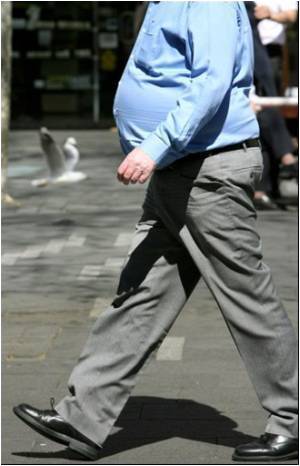The obese are as much despised as the politicians and the homeless, a survey has revealed. Body-type preferences over time have also become moral values, psychologists say.

The new findings, published in the International Journal of Obesity, seem to show negative attitudes toward obese individuals are quite resistant to change.
"Although the scientific community acknowledges biological, behavioural and social contributors to body weight, a common belief in society at large is that one's body weight is almost infinitely malleable," says University of New South Wales psychologist Dr Lenny Vartanian. "The problem with this idea of willpower is that we chalk it up to a moral weakness." Dr Vartanian's findings suggest that this moral judgement is not based on logic but on an emotional response to obesity itself.
The research involved three studies. In the first, 300 American university students completed questionnaires asking how favourably they rated various social groups and how much they believed being part of that group was under an individual's personal control.
They rated obese people, along with 15 other groups, including African Americans, smokers, lottery winners, welfare recipients, drug addicts, homosexuals, the mentally ill, and people who were elderly, homeless, rich or religious. Finally, they were asked to rate the feelings of disgust they held towards each group.
In general, the social groups rated most negatively and with the highest levels of disgust were those perceived to have an element of personal control over being a member of that group. Obese people were among the most negatively viewed groups, on par with homeless people and politicians. The only groups rated as more negatively and as more disgusting were drug addicts and smokers.
Advertisement
The results "provide strong evidence for disgust as a predictor of negative attitudes toward obese people", the paper notes.
Advertisement
"Attractiveness standards have shifted over time, with more curvaceous figures being preferred in the beginning of the 20th century and again in the 1950s, but more slender ideals being prominent in the 1920s and continually since the 1980s. In parallel with this latter trend, attitudes toward obese individuals are worse today than they were 40 years ago.
"It is possible that these body-type preferences over time have also become moral values, and that those who violate this moral value elicit a disgust response. Efforts to change negative attitudes toward obese individuals, therefore, might work toward reversing this moralization process and reducing the moral value placed on leaner body types." Dr Vartanian adds.
Source-Medindia
GPL






